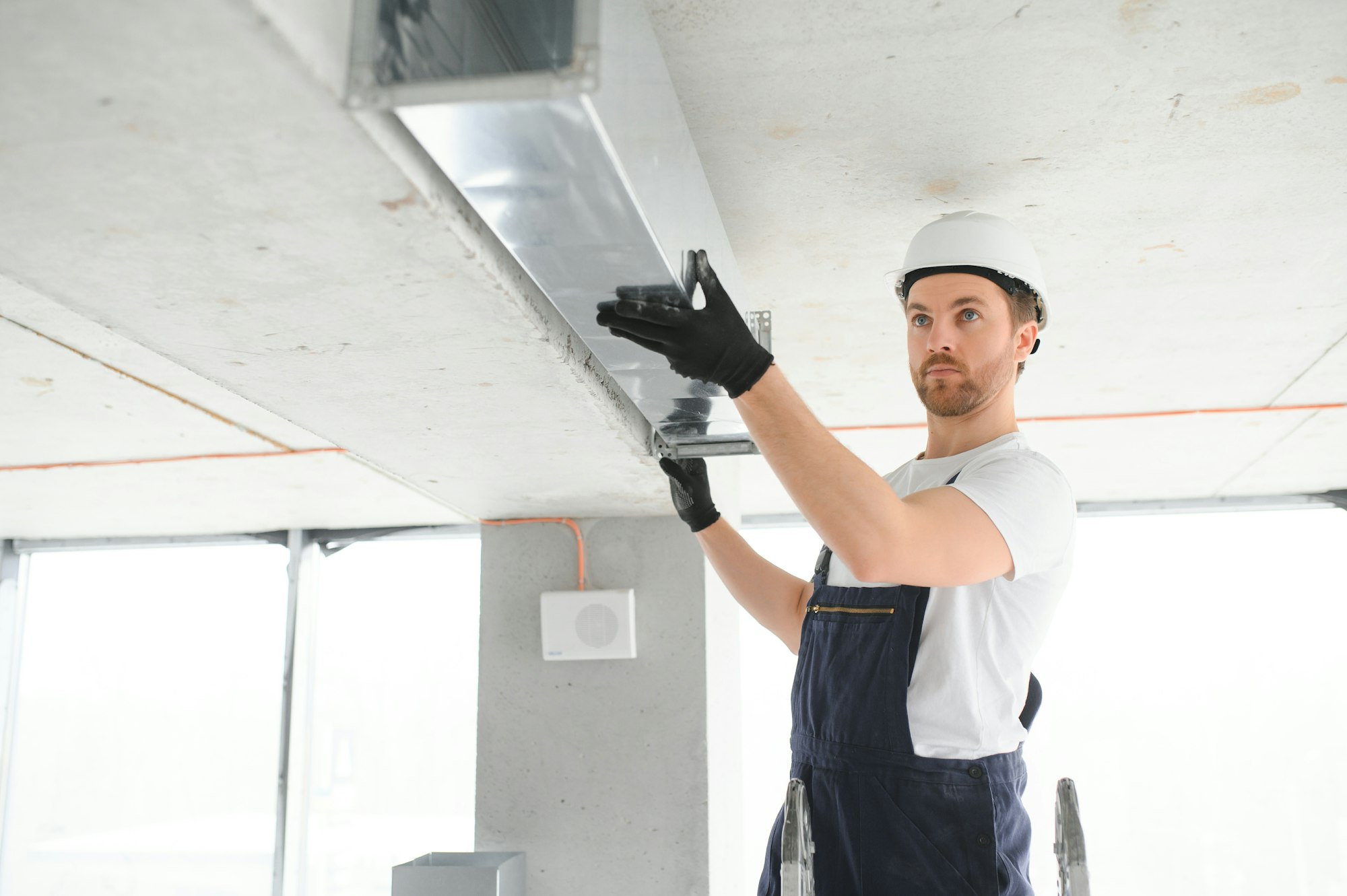Commercial spaces are designed for business operations. Such areas are buzzing with employees, clients and business activities. And so, it becomes essential to make the place work-friendly and comfortable for the people. This includes catchy interiors, contemporary furniture, and, most importantly, air conditioning service managed by a professional company.
In short, commercial spaces need a proper air conditioning facility that is often centralised and is operated through an AC plant. The air conditioners help purify the air in the building and maintain favourable temperatures during extreme weather conditions.
Meanwhile, self-employed professionals like Doctors, Dentists, Legal Advisors, Property Consultants, and other such professionals operating their offices in a commercial area prefer to install commercial air conditioners to make their office welcoming for the staff and visitors. The purpose is to maintain suitable temperature, facilitate ventilation and have adequate humidity in the premises.
When so much is related to commercial air conditioners, utmost importance should be given to its installation process, which should meet the Building Code and fulfill the needs of the space.

Let us look at the 8 most crucial aspects to be considered before installing commercial air conditioners.
MEASURE THE SIZE OF YOUR COMMERCIAL SPACE
Before installing the air conditioning system, you should have the exact measurement of your commercial setup, including the floor space. Generally, commercial buildings have huge areas that require vast electricity consumption for cooling and heating needs.
Bigger spaces tend to use more power if the air conditioner is not installed as per the desired capacity. This results in power wastage and high energy bills. It may also require more time for upgrading or repairing the air conditioner unit.
Unlike small areas, the bigger spaces should be fitted with an air conditioner of suitable tonnage. For this, you should hire a professional company with an experienced team that can help you make the right decision.
The team will…
- Evaluate your floor space thoroughly
- Do load calculation according to usage
- Calculate the size of the unit suited for your area
- Suggest the number of AC units required for your space
SELECT THE MOST SUITABLE AIR CONDITIONING SYSTEM
Commercial setups install different types of HVAC (heating, ventilation, and air conditioning) systems compared to residential premises.
There are various factors that should be kept in mind before finalising the air conditioning system for the commercial establishment. This includes the size, need and configuration.
For large spaces, a multi-split HVAC unit is ideal. It consists of many indoor units connected to a single outdoor unit of greater capacity. Such a type of system is suitable for the cooling and heating needs of multi-storey buildings or spaces with more extensive floor areas.
The best part about the HVAC system is that it allows controlling temperature for every zone instead of a fixed temperature for the whole facility.
How to choose a suitable air conditioner system for your needs?
- For a larger office setup, one can choose a low-sounding HVAC system
- Owners of dealerships or showrooms can opt for louder and bigger units
- For shops, café, server rooms, and small offices, one can choose a single split AC unit
In addition, there are many other systems, including:
- Variable Refrigerant Flow (VRF) or Volume Refrigerant Flow (VRV) – it has multiple condensers combined to a bigger condensing unit.
- Constant Air Volume (CAV) – this is an effective yet affordable HVAC system that provides a constant airflow at a variable temperature
- Variable air volume (VAV) – this system varies the airflow at a constant temperature via a single-duct supply unit
VRF systems are ideal for medium and large spaces, while VRV and CAV systems are suitable for single-zone facilities.
CHECK THE POSITION OF YOUR PREMISES
A well-qualified and professional air conditioner installer will advise installing an HVAC system according to the geographical location of your building. For example, architects plan the roof positioning and windows as per the commercial space’s cooling and heating requirements.
The professional AC installers study the location and layout of the property to decide on an appropriate system that can provide complete efficiency with less energy usage.
Notably, the location and layout of a building play an important role in deciding the type of system to be installed. The right configuration and selection of HVAC systems can significantly affect the heating and cooling capabilities.
EVALUATE THE TEMPERATURE CONDITIONS OF YOUR SPACE
The aim of the HVAC system is to maintain an ambient temperature on the premises. A professional air conditioning installer will help you install a suitable HVAC system on your premises after surveying your commercial facility.
The installer will study the internal processes that may affect the system’s functioning in the longer run. Usually, commercial buildings house kitchen or pantry areas that emit heat and raise the temperature of the adjoining areas. In such cases, a knowledgeable installer will not recommend a centralised air conditioning system but a system with zone-controlling capabilities.
CHOOSE THE RIGHT SIZE OF THE AC UNIT
Choosing the right size of the AC unit is vital for its proper and effective functioning. Here, the size is not about the physical dimension of the AC unit but its capacity to provide the desired heating and cooling. A smaller capacity AC unit will have to run on a continuous basis to maintain the ambient temperature.
With the help of an experienced installer, you can install the right system with efficient functional capacity. The installer keeps in mind various factors, such as the area, layout, positioning and thermal characteristics of the AC unit.
ENSURE PROPER DUCT INSTALLATION IN YOUR PREMISES
The outlet of the AC air is through ducts in a commercial establishment, especially in a centralised AC environment. And therefore, proper planning and layout is an essential factor for ducting in the premises.
A knowledgeable installer must supervise the ductwork and ensure it is appropriately done and covers the entire area. It should be done with utmost caution without much wear and tear on the premises.
ENSURE PROPER SAFETY MEASURES BEFORE INSTALLATION
Before installing the air conditioning system, there are certain safety measures that need to be considered to achieve efficiency.
- The AC unit should be installed on a solid wall that can bear its weight
- The AC installation area should have enough space for future repair/maintenance
- The AC unit should be installed away from direct sunlight, heat sources and sharp objects
- The AC unit should be installed as per brand guidelines to avoid accidents or breakdown
- The AC unit comes with a thermostat that needs installation for controlling the temperature
If the thermostat is already there, the professional installer will check and ensure its connection. In the case of multiple floors, smart thermostats can be installed for each floor by the installer.

CONDUCT FINAL CHECK & TESTING
After your air conditioning system is installed successfully, you should ask the installer to final check your unit. The installer will check and test every part of your commercial air conditioning unit for cooling and heating efficiency and test its overall functioning.
The installer will ascertain any technical glitch or malfunctioning, which may occur during installation, and correct it.
Finally, the installer will guide your maintenance department for the air conditioning service schedule. The installer will also guide the department on essential troubleshooting tips.
Since commercial air conditioning systems are different from residential ones in terms of size, capacity, and efficiency, they need proper maintenance and care. And so, it is important to engage a professional air conditioning company that can help you in servicing, maintenance and repair of the unit as and when required.
Why is it so expensive to install commercial air conditioners?
The installation of commercial air conditioners is a specialised job, which requires an in-depth understanding of refrigerant dynamics, electrical, airflow, plumbing, and thermodynamics. All this knowledge and wisdom comes from extensive training and on-site experience. Even the slightest mistake can cost the client dearly. Therefore, business owners do not take any chance and prefer only professional installers for their HVAC installation. It costs higher than residential AC installation due to its immense technicalities.
As a long-term solution, it is recommended to get in touch with an experienced company that can provide a complete air conditioning solution for commercial setups, from choosing the right system to installation to service and annual maintenance of your air conditioning unit.
It is a good idea to go for an annual maintenance contract (AMC) for your commercial air conditioning system to ensure complete peace of mind.
If you are based in London, you can get in touch with a professional air conditioning solution company backed by a highly experienced team that can provide hassle-free installation service for commercial air conditioners. Air Con Company is one of the professional companies providing air conditioning installation, maintenance, and repair services to commercial and residential customers in London and beyond at unbeatable prices. For any questions and queries, you can contact the Air Con Company now.




